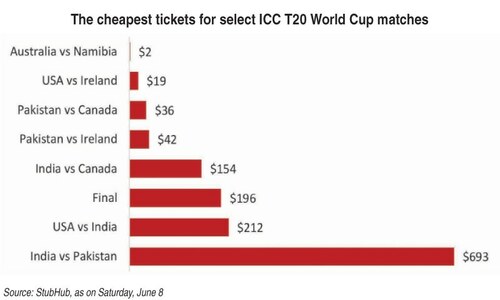
NEW YORK: The United States has rejected over 40 per cent of the claims submitted by Pakistan as expenses to fight Al Qaeda and other terrorists along the Afghanistan border, the Wall Street Journal said in a report on Tuesday.
According to internal Pentagon documents, the report said, the US, increasingly suspicious of what it saw as Islamabad's mixed record against militants, had been quietly rejecting more than 40 per cent of the claims submitted by Pakistan as compensation for military gear, food, water, troop housing and other expenses.Those records detail $3.2 billion in expense claims submitted to the US for operations from January 2009 through June 2010.
According to the documents and interviews with officials, Pakistan has routinely submitted requests that were unsubstantiated, or were deemed by the US to be exaggerated or of little or no use in the war on terror –underscoring what officials and experts see as a deep undercurrent of mistrust between both nations.
“This is about how much money Pakistan can extract,” said Moeed Yusuf, South Asia adviser for the United States Institute of Peace, an independent research organisation funded by Congress.
Pakistani officials, the report said, denied they were trying to bilk the US, and said that the increased American scrutiny had sent the message to the Pakistanis that Washington considered the army to be full of cheats.
A senior Pakistani official called this “detrimental to bilateral trust”, adding that while Islamabad understood the need for some scrutiny, the US had gone too far.
“People have to give a receipt for every cup of tea they drink or every kilometre they drive,” said the official.
US officials say that Pakistani claims have been rejected for a number of reasons, including failure to confirm that expenses were incurred in support of American operations in Afghanistan and the war against terrorism.
Some US officials also fear that some of the aid is being diverted to the border with Pakistan's traditional rival, India.
Secret diplomatic cables obtained by WikiLeaks show that US officials were taken aback by Pakistani claims as early as 2006, including a $26 million charge for barbed wire and pickets, and for almost $70 million in radar maintenance, “although there is no enemy air threat related to the war on terror”.
The documents show that denial rates have climbed from a low of 1.6 per cent in 2005, to 38 per cent in 2008 and 44 per cent in 2009.













































Dear visitor, the comments section is undergoing an overhaul and will return soon.